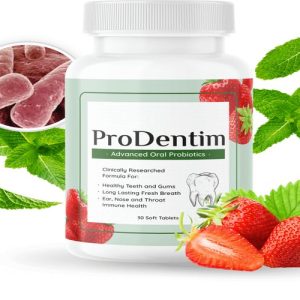- Is whey protein bad for health?
- What could be the potential side effects of whey protein?
- How does whey protein add to our health in a positive way?
- Is whey protein natural or synthetic?
These are some of the common questions we encounter the most where protein supplements come into the picture. We will address everything about whey protein one by one.
Health enthusiasts mostly consume whey protein as a supplement combined with resistance workouts to improve lean muscles’ mass. But do you have complete knowledge of what it is, its benefits & whey protein powder side effects? Allow us to present whey protein to you to help you make a wiser decision.
Milk is a composition of two proteins- Casein & Whey. In milk, it’s possible to separate whey from the casein to form a by-product of cheese. Also, whey is considered a complete protein as it has all 9 amino acids with low lactose content.

Now, there are endless advantages of whey protein along with maybe some side effects of using whey protein that is minor. Researchers are on their way to finding more of its therapeutic properties.Here, we will talk about the negative effects of whey protein, benefits, or risks, if any. Before that
A Quick Look At Some Facts
- Whey protein is an amalgamation of beta-lactoglobulin, alpha-lactalbumin, bovine serum albumin & immunoglobulins.
- Two prominent benefits of whey protein include weight loss and low cholesterol.
- Whey protein is said to have no dangerous side effects other than nausea & headaches if doses get heavy.
- The research on whey protein is still under process.
Is Whey Protein Natural or Synthetic?
It’s a 100% natural product made with the remains of curd and milk when separated.
Types Of Whey Protein
Primarily, there are 3 types of whey protein.
- Whey Protein Concentrate: This type has low fat and carbs levels. Its protein percentage depends on how concentrated this WP is. Lower-end concentrates have around 30% protein & higher-end has up to 90%.
- Whey Protein Isolate: This whey protein is processed further to eliminate fat and lactose from it. It’s not less than 90% protein.
- Whey Protein Hydrolysate: It’s a ‘predigested’ whey protein type because it has already undergone partial hydrolysis. It’s a vital process necessary for the body to absorb protein. This whey protein type does not require much digestion, unlike the other two forms of whey protein. Additionally, Whey Protein Hydrolysate is commonly taken in use in medical protein supplements & infant formulas.
What’s The Ideal Dose Of Whey Protein?
30 grams of whey protein by mouth each day is considered to be an ideal intake. But it’s always advisable to consult a healthcare professional on the amount of dose effective as per your individual needs. Else, there could be adverse effects of whey protein rather than good.
Benefits Of Whey Protein Backed With Popular Research
- Aids In Weight Loss: In a study published in Nutrition & Metabolism of 158 people, it was found that people who were consuming whey protein were losing more body fat and preserving lean muscles than people having controlled beverages.
- Anti-Cancer Properties: Though it requires more research, as per a promising result published in Anticancer Research, whey protein has anti-cancer properties.
- Low-Cholesterol: In a study published in The British Journal of Nutrition, it was proven that whey protein lowers the cholesterol level in the body. Seventy overweight people (both men and women) were given whey protein for twelve weeks to measure some parameters in the end like the level of lipid and insulin. It was found that their total cholesterol level decreased by the 12th week.
- Asthma: As per a study published in the International Journal of Food Science and Nutrition, 11 children suffering from Asthma were given 10 gms of whey protein twice daily for a month. After a month, it was found that they had an improvement in the immune response.
- BP & Cardiovascular Diseases: As per a research published in the International Dairy Journal, it was found that whey protein as a supplement to beverages reduced BP and hypertension in patients with a reduced risk of stroke and heart diseases.
- Weight Loss In HIV Patients: As per a study published in Clinical and Investigative Medicine, it was found that whey protein is beneficial for reducing weight in people with HIV.
Possible Side effects Of Whey Protein
If your doses are moderate, there are absolutely no side effects of whey protein. However, people allergic to milk will be allergic to whey protein too. They must consult the doctor before consuming it. Some of the side effects when whey protein doses go a little higher could be:
- Headache and nausea
- Loss of appetite
- Stomach ache and cramps
- Fatigue
- Acne
Benefits Of Whey Protein
1. High-Quality Protein
During the cheese production process, a liquid is separated from the milk called the whey protein. It’s extremely high in protein and other essential amino acids. Furthermore, its digestion is easy and your gut doesn’t find it difficult to absorb it when compared with other proteins.
All these qualities make whey protein one of the best on the market.
It’s very popular amongst bodybuilders, athletes & other people fond of protein in their diet.
2. Promotes Muscle Growth
It’s a biological fact that with age, muscle mass starts to decline & fat gain starts to increase leading to multiple illnesses that stay.
But it’s possible to slow this unfortunate process or even reverse it with strength workouts and a good diet.
A combination of strength exercises & a diet rich in protein or protein supplements like whey is a good strategy to work on your muscles.
Whey is loaded with leucine that’s the most growth-promoting of all amino acids. It’s one of the reasons why it’s most successful in preventing muscle loss that’s age-related.
Particularly for muscle growth, whey protein is a great option when compared with casein & soy.
3. Lowers Blood Pressure
The high BP issue is one of the prominent factors responsible for heart disease. Many studies reveal that consuming dairy products reduces BP because it contains bioactive peptides, an angiotensin-converting enzyme inhibitor.
4. Treats Type 2 Diabetes
It’s a chronic disease that’s characterized by high BP & insulin’s impaired function. Insulin is a hormone that stimulates blood sugar uptake into cells that keep them healthy.
Whey protein moderates blood sugar, as a result, increasing insulin levels & sensitivity to its effects.
Also, when whey protein is compared with eggs and fish, whey protein takes the lead. Additionally, whey protein’s properties are compared with diabetes medication like sulfonylurea. Therefore, it’s great for type 2 diabetes.
It’s best to consume whey protein with a high-carb diet or prior to it.
5. Reduces Inflammation
Inflammation is a part of our body’s response to any sort of damage. Though short-term inflammation is good for the body, it can become chronic in certain circumstances that could have a negative effect on our health and responsible for a number of diseases.
Whey protein when consumed in a high amount (20 grams a day or more) aids in reducing c-reactive protein that’s a key inflammation marker in our body.
6. Good For Inflammatory Bowel Disease (IBD)
It’s a disease characterized by chronic inflammation in the digestive tract’s lining. Whey protein is proved to be beneficial for IBD in both humans and rodents. Though strong research results are still pending.
7. Enhances the Body’s Antioxidant Defense
Antioxidants work against the body’s oxidative stress & reduce the risk of chronic illness. Glutathione is one of the vital antioxidants in the body that’s produced naturally unlike other antioxidants.
Amino acids like cysteine are responsible for the production of Glutathione in the body. Due to a lack of cysteine, the production might get hampered. Whey protein is rich in high cysteine that boosts the body’s natural antioxidant defenses.
8. Good For Blood Fats
High cholesterol is one of the prominent factors responsible for heart disease. Whey protein lowers the cholesterol level in the body.
Remember, there could be harmful effects of whey protein if you are suffering from a prolonged illness. In that case, consult your doctor before feeding anything alien to your body.
9. Helps You Consume Lesser Calories
There are some foods that satiate you more in comparison to others. Protein, so far, is the most satiating food item that eventually reduces your appetite. Remember, not all proteins have the same impact.
Talking about whey protein, its satiation level is far better than soy or casein. For people willing to cut down on their calorie count, whey protein is a great addition to their diet.
10. Helps In Weight Loss
Increasing your protein intake is a very successful weight loss plan. How?
- It boosts metabolism & burns calories.
- Keeps your muscle mass intact when you lose weight
- Fewer calorie intake.
To conclude, benefits or weight protein weigh more than side effects of whey protein.
Also, it’s not just limited to increasing your protein intake, but it has numerous health benefits too. For daily health tips, amazing recipes & fitness articles, subscribe to Stay Fit And Strong via Email, like us on Facebook, and follow us on Twitter.








